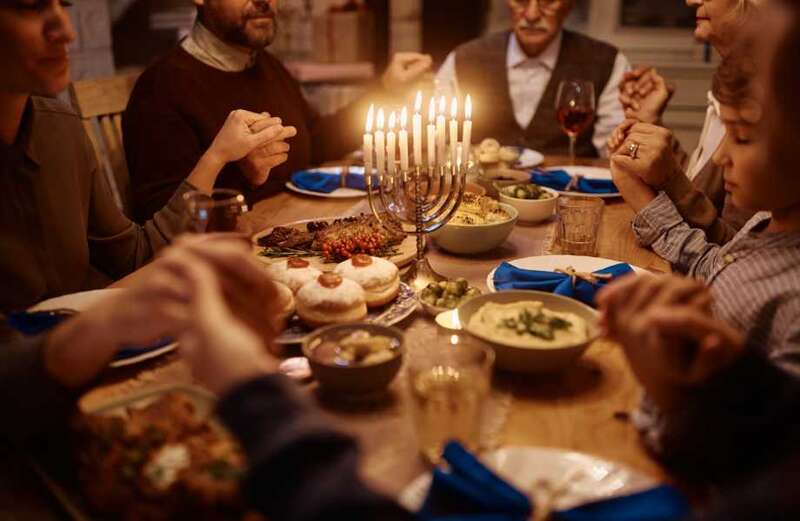HANUKKAH, also known as the Festival of Lights, is one of most important holidays on the Jewish calendar.
The celebrations are traditionally observed by lighting a candle a day for eight days, and spending time with family and friends.

When is Hanukkah 2023?
Hanukkah is an eight-day Jewish holiday that is celebrated in late November or December.
The holiday begins on the 25th day of Kislev - the ninth month of the year on the Hebrew calendar.
The Hebrew calendar is based on both the sun and the moon, unlike the Gregorian calendar, which is why the date changes slightly from year to year.
 Are there illegal baby names? Surprising monikers that are BANNED in other countries, from Sarah to Thomas
Are there illegal baby names? Surprising monikers that are BANNED in other countries, from Sarah to Thomas
In 2023, the Festival of Lights begins on the evening of Thursday, December 7.
It will end on Friday, December 15.
Hanukkah begins at sundown, when people will light the first candle on their menorah.
According to the Jewish calendar, every day begins at nightfall and the Torah defines a day as beginning with the evening.
What is Hanukkah?
Hanukkah means "dedication" and honours the Jewish people's struggle for religious freedom more than 2,500 years ago.
The story of Hanukkah dates back to two centuries before the beginning of Christianity.
Legend has it the leaders of a Jewish rebel army called the Maccabees rose up against their Greek-Syrian oppressors.
The Jewish people then rejoiced and cleaned their temple, but only one bottle of blessed oil remained.
There was just enough to light one candle but, to the surprise of the people, the oil burned for eight whole days.
These eight days are now marked by the eight days of Hanukkah celebrations and are represented on the menorah.
 All about Rachel Nickell who was murdered in front of her son Alex Hanscombe
All about Rachel Nickell who was murdered in front of her son Alex Hanscombe
Hanukkah has been celebrated every year since the battle, commemorating the tenacity and willpower of the Jewish people.
In Hebrew, Hanukkah is pronounced with the letter "chet" so it sounds like Chanukah.
It can be spelt Chanukah or Hanukkah.
How is Hanukkah celebrated?
Hanukkah is traditionally a time for families and friends to get together, share food, and play games.
Eating is a big part of the celebrations and Jewish people traditionally eat fried foods to honour the miracle temple oil.
Sufganiyot are round deep-fried jam or custard-filled doughnuts topped with powdered sugar that are often eaten during Hanukkah.
Another popular food eaten during the holiday is latkes, which are fried potato pancakes.
Beef brisket is also served at many Jewish festivals, including Rosh Hashanah, Passover, and Hanukkah.
It first became popular in eastern Europe when those living in the region weren't able to afford more expensive cuts of meat.
Children are often given chocolate money in celebration of Hanukkah, and games are often played.
The most common game involves spinning a dreidel in a fun game of chance.
Presents can also be exchanged during Hanukkah but they are often small, food-themed gifts.
Friends and family traditionally gift one present for each night of the holiday.
On each of the eight nights of Hanukkah, a candle is lit in a menorah called a hanukkiyah.
Candles are typically lit left to right and placed in the front windows of houses.
There are several different ways to wish somebody a Happy Hanukkah.
The literal translation for Happy Hanukkah in Hebrew is "Hanukkah Sameach', but saying "Chag Sameach", meaning "Happy Holidays", is equally acceptable.


































